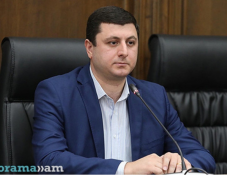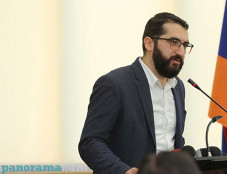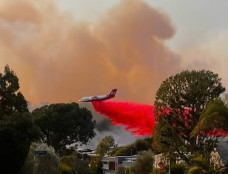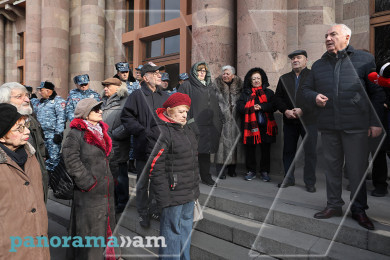
Lockdowns ease as global coronavirus cases near 3 million
US President Donald Trump has repeatedly said he wants to resume business in the world's biggest economy, even as medical advisors have cautioned against easing lockdown too soon or too fast, AFP reports.
Following the president's offer, swimming pools are allowed to reopen in Georgia and Oklahoma, while restaurants can resume dine-in service in Alaska. However, customers must abide by the rules of social distancing. Other US states are considering a gradual easing of restrictions on public life.
The confirmed US death toll from the coronavirus soared past 50,000, according to the April 24 data provided by the Centers for Disease Control and Prevention.
Spanish children were allowed outside on Sunday for the first time in six weeks as countries eased lockdown measures in a bid to slowly reopen economies gutted by the coronavirus pandemic that has infected nearly three million people worldwide.
Italy on Sunday said schools would reopen in September, while many business could resume work next week, and France was expected to unveil details of its de-confinement plan on Tuesday.
Belgium said schools and businesses will reopen from mid-May, while shops in Germany started to reopen earlier this week.
Meanwhile, Saudi Arabia on Sunday said it would partially lift its 24-hour curfew, allowing malls and retailers to open their doors during certain hours.
But the kingdom said it would maintain a round-the-clock lockdown in the Muslim holy city of Mecca.
Meanwhile in Beijing, a new set of regulations were introduced to combat the pandemic, banning "uncivilised" behaviour such as not covering the mouth and nose when coughing or sneezing.
Coronavirus cases around the world topped 2.9 million Sunday and deaths hit nearly 203,000 people, well over half of them in Europe, according to an AFP tally.
Some governments are studying measures such as "immunity passports" as one way to get people back to work after weeks of shutdowns that have roiled the global economy.
But the WHO warned that people who survive infection cannot be certain they will not be hit again by the respiratory disease, which first emerged in China late last year.
Related news
Newsfeed
Videos






























